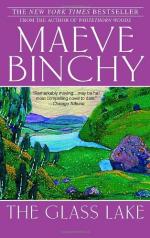|
This section contains 232 words (approx. 1 page at 300 words per page) |

|
Maeve Binchy's fiction is comic in the most classic sense of the word. Her foibled and flawed characters persist in spite of themselves. And the resolutions of her novels tend to tinge the triumph of humanity with a bit of human error. In this respect, her vision resembles the worlds William Shakespeare created in his comedies. In plays such asA Midsummer Night's Dream (c. 1596) and Much Ado About Nothing (c. 1598) Shakespeare explored the human difficulty in distinguishing between appearance and reality. Their plots end happily, but ambiguously. Myth, mix-up, magic potions, and other forms of dens ex machina are often necessary to right the errors made by the characters.
In The Irish Comic Tradition (1962), literary scholar Vivian Mercier traces what he calls "the prevalence of the comic spirit in Anglo-Irish literature of the twentieth century." Mercier begins with Irish Gaelic mythology and proceeds to trace the...
|
This section contains 232 words (approx. 1 page at 300 words per page) |

|




